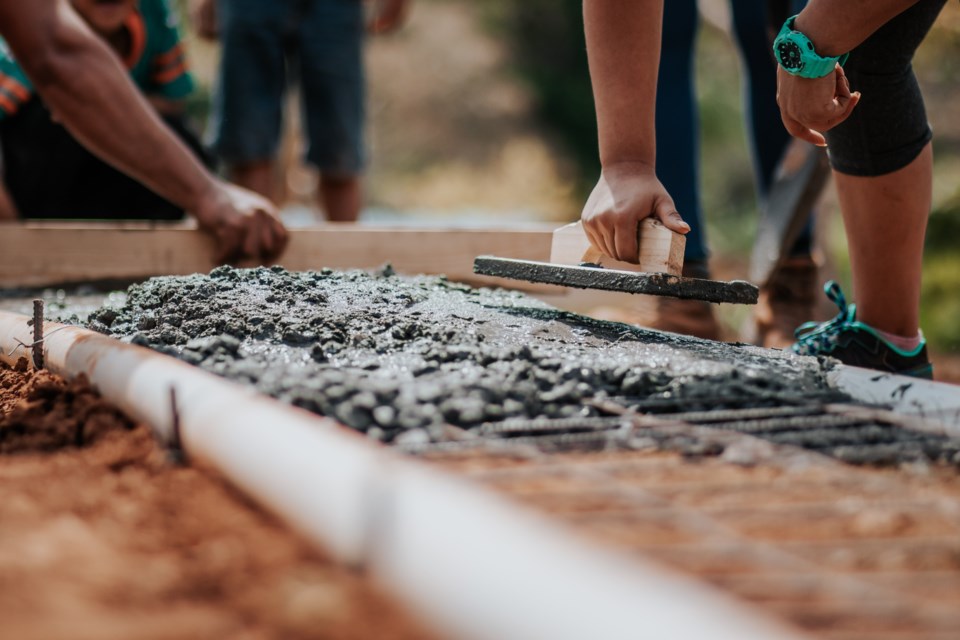Talk about a backlog. There are thousands of approved housing units in Barrie that have yet to see a shovel in the ground.
“It’s about 19,000 units that are approved but have not been built,” Michelle Banfield, the city’s director of development services, told city council Monday. “As it relates to population targets is we average about 2.7 people per unit, and so if these 19,000 units were occupied it would be around an additional 53,000 people living in the city of Barrie.”
The 19,000 number was clearly a new one to most Barrie councillors during discussion on — what else — affordable housing.
Coun. Mike McCann wanted to know what the numbers were in other Ontario cities.
“Are builders telling us they’re not building in Barrie because there’s too much red tape or cost, or they’re full of malarkey because every city has the same type of issue we have?” he asked. “If they’re not building, right, and they’re holding onto their land, then we really should be looking at some of the (building) permits that we have. Should we put a little pressure to build or to take permits away?”
Mayor Jeff Lehman said Toronto has 70,000 approved but unbuilt residential units and that’s not including ones in the last year.
Coun. Gary Harvey said he was astounded by the numbers.
“The volume of permits that are just sitting, that haven’t been built... 19,000 is a crazy number when you consider the population of the city of Barrie and the size of our city in comparison to 70,000 that it was for a massive city the size of Toronto,” he said. “It just goes to show you, this has nothing to do with the planning department or council not approving stuff.
“I have no idea what the issue is here, but obviously the builders aren’t building for some reason and that’s where we really need to start putting some control measures in place with these applications to ensure that there’s some reasonable expiry dates, so that way this stuff does get built because we shouldn’t be in the situation where we are," Harvey added.
Lehman said Ontario’s Big City Mayors are having a series of meetings with the Association of Municipalities of Ontario (AMO) to understand the provincial housing task force report, and its 55 recommendation, to give the government its view.
The issue of units approved but not built will be discussed, said Lehman, who is the Big City Mayors chairman.
“Yes, municipal approvals can always be improved, but we have this huge chunk of units we have approved and haven’t been built,” he said. “So what’s going on there? If it’s not the planning process that’s keeping those units off the market, what is it?”
Lehman said his group is working with the development and construction industries to get to the bottom of it.
“The short answer is that like many thorny issues, there’s not a simple, easy answer. There’s a bunch of issues,” he said, mentioning water tables, hydrogeology issues, financing changes or in project ownership that come up after the planning approval.
As part of Barrie’s new Official Plan, approved Monday night by council, all new residential development and redevelopment in medium- and high-density land-use designations shall provide 15 per cent of those housing units as affordable, a change from the status quo of 10 per cent. The city will also require the provision of a minimum of 15 per cent of all new housing units each year to be affordable.
These requirements are obviously affected by 19,000 approved but unbuilt new residential units in Barrie.
“The affordable housing target that goes into the Official Plan speaks to how many units you design to be at an affordable purchase price and an affordable rental price, and so it’s about the size of them, it’s about the type of them, it’s about the range of community amenities,” Lehman said.
“When we set a target in the Official Plan, we’re saying when you (developers) design projects, make sure that 10 or 15 per cent are at least targeting this purchase price or rental amount, and that can be accomplished in many cases through design,” he added. “With increases in the cost of construction it is very very difficult to deliver a purchase unit for say $300,000 in the city of Barrie anymore. Dare I say probably impossible unless you own the land.”
The OP is to take Barrie to 298,000 people and 150,000 jobs, while at the same time defining land use, between now and 2051.



